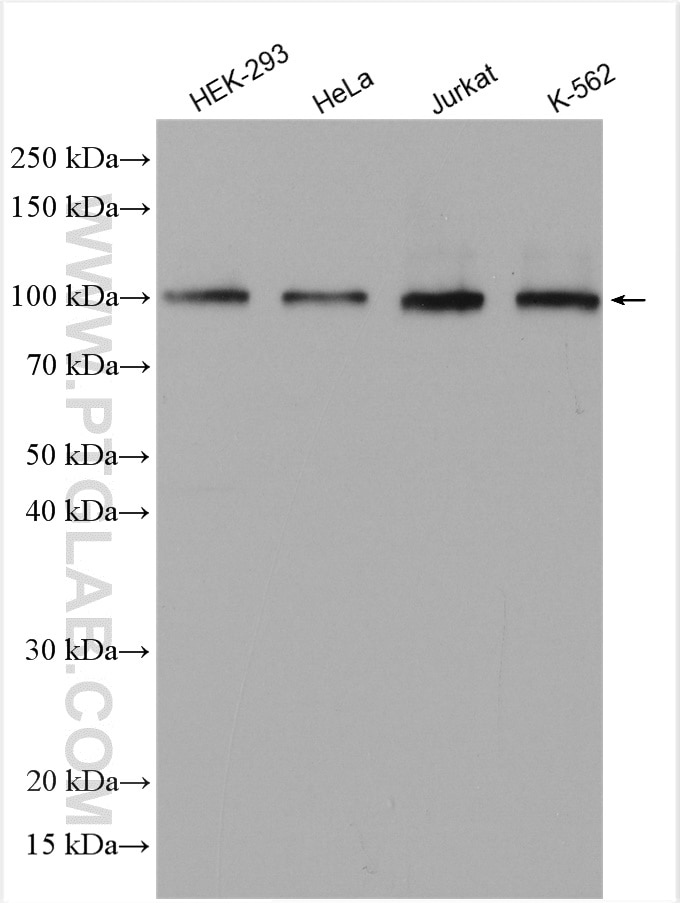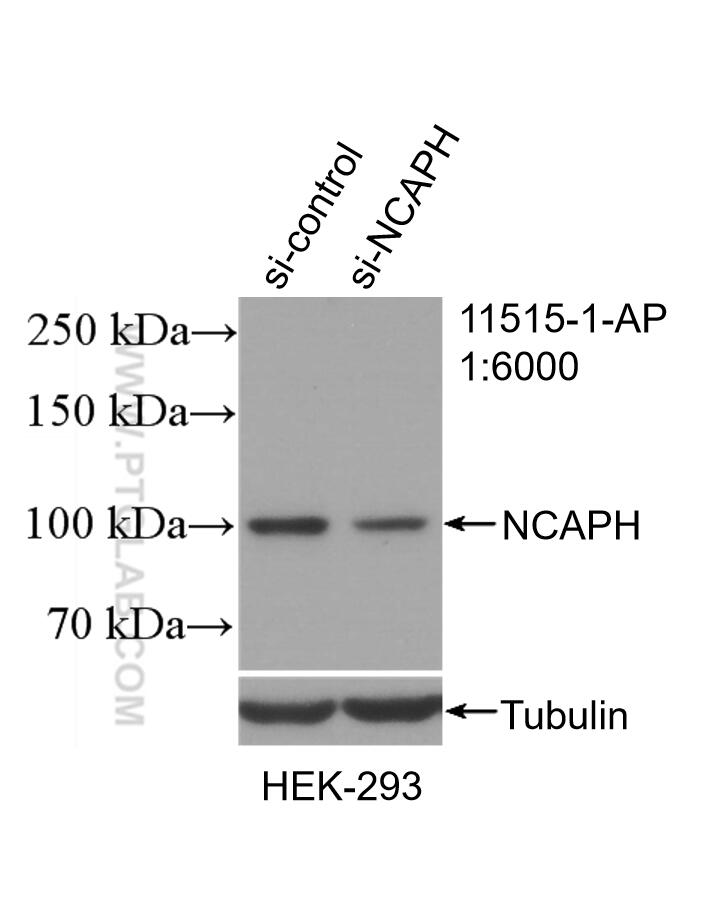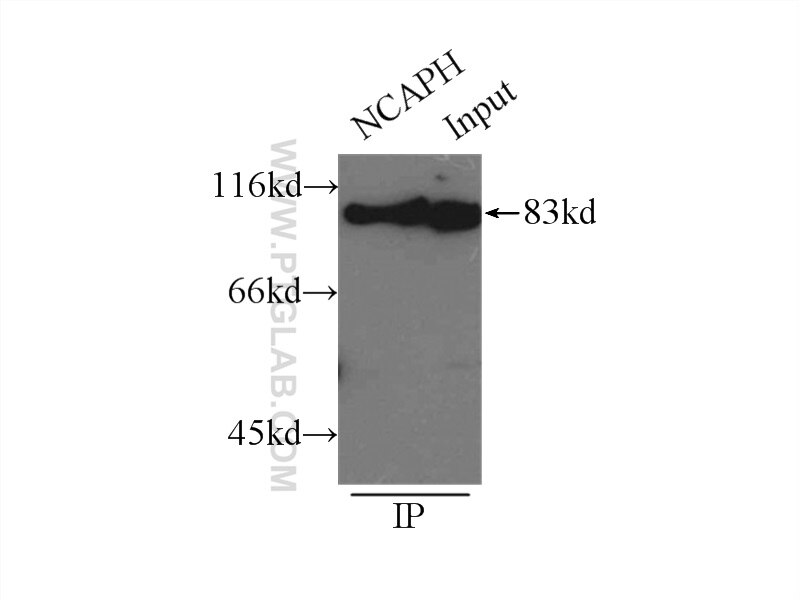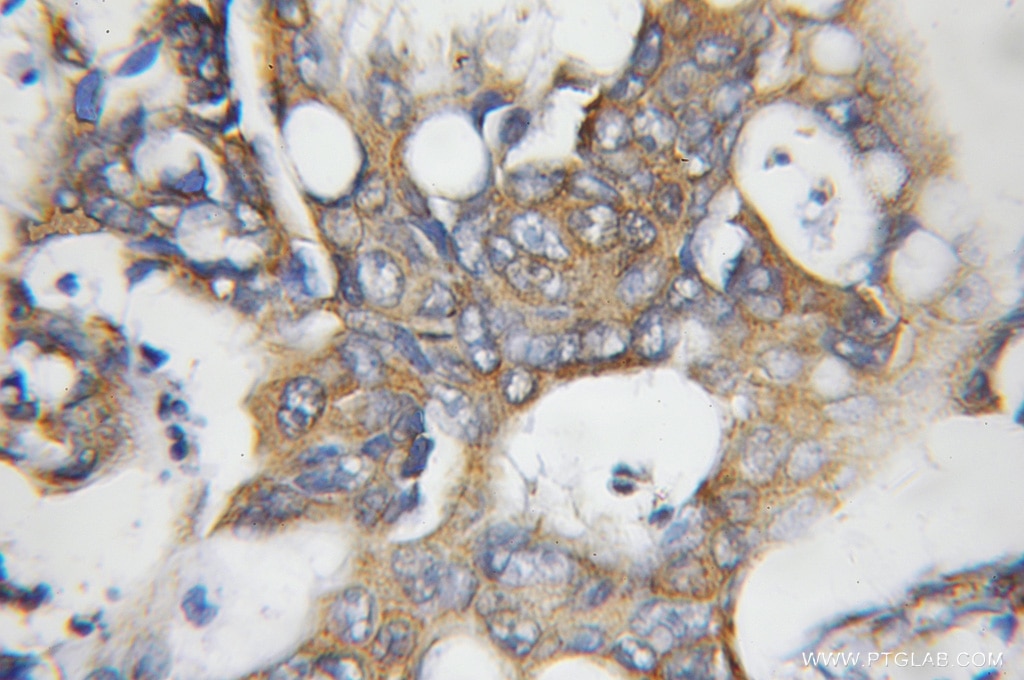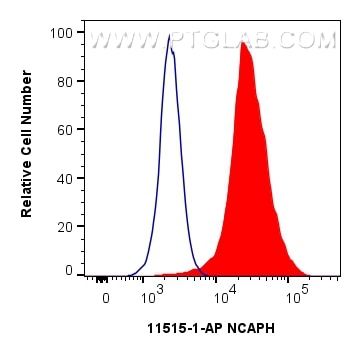Tested Applications
| Positive WB detected in | HEK-293 cells, Jurkat cells, K-562 cells, HeLa cells |
| Positive IP detected in | HeLa cells |
| Positive IHC detected in | human colon cancer tissue Note: suggested antigen retrieval with TE buffer pH 9.0; (*) Alternatively, antigen retrieval may be performed with citrate buffer pH 6.0 |
| Positive FC (Intra) detected in | HEK-293 cells |
Recommended dilution
| Application | Dilution |
|---|---|
| Western Blot (WB) | WB : 1:1000-1:4000 |
| Immunoprecipitation (IP) | IP : 0.5-4.0 ug for 1.0-3.0 mg of total protein lysate |
| Immunohistochemistry (IHC) | IHC : 1:20-1:200 |
| Flow Cytometry (FC) (INTRA) | FC (INTRA) : 0.40 ug per 10^6 cells in a 100 µl suspension |
| It is recommended that this reagent should be titrated in each testing system to obtain optimal results. | |
| Sample-dependent, Check data in validation data gallery. | |
Published Applications
| KD/KO | See 5 publications below |
| WB | See 10 publications below |
| IHC | See 5 publications below |
| IF | See 2 publications below |
| CoIP | See 1 publications below |
| ChIP | See 1 publications below |
Product Information
11515-1-AP targets NCAPH in WB, IHC, IF, FC (Intra), IP, CoIP, ChIP, ELISA applications and shows reactivity with human, mouse, rat samples.
| Tested Reactivity | human, mouse, rat |
| Cited Reactivity | human, mouse |
| Host / Isotype | Rabbit / IgG |
| Class | Polyclonal |
| Type | Antibody |
| Immunogen |
CatNo: Ag2076 Product name: Recombinant human NCAPH protein Source: e coli.-derived, PGEX-4T Tag: GST Domain: 392-741 aa of BC024211 Sequence: SWKEPCQVQSCQEEMISLGDGDIRTMCPLLSMKPGEYSYFSPRTMSMWAGPDHWRFRPRRKQDAPSQSENKKKSTKKDFEIDFEDDIDFDVYFRKTKAATILTKSTLENQNWRATTLPTDFNYNVDTLVQLHLKPGTRLLKMAQGHRAETEHYEEIEDYDYNNPNDTSNFCPGLQAADSDDEDLDDLFVGPVGNSDLSPYPCHPPKTAQQNGDTPEAQGLDITTYGESNLVAEPQKVNKIEIHYAKTAKKMDMKKLKQSMWSLLTALSGKEADAEANHREAGKEAALAEVADEKMLSGLTKDLQRSLPPVMAQNLSIPLAFACLLHLANEKNLKLEGTEDLSDVLVRQGD Predict reactive species |
| Full Name | non-SMC condensin I complex, subunit H |
| Calculated Molecular Weight | 741 aa, 83 kDa |
| Observed Molecular Weight | 83-100 kDa |
| GenBank Accession Number | BC024211 |
| Gene Symbol | NCAPH |
| Gene ID (NCBI) | 23397 |
| RRID | AB_2150003 |
| Conjugate | Unconjugated |
| Form | Liquid |
| Purification Method | Antigen affinity purification |
| UNIPROT ID | Q15003 |
| Storage Buffer | PBS with 0.02% sodium azide and 50% glycerol, pH 7.3. |
| Storage Conditions | Store at -20°C. Stable for one year after shipment. Aliquoting is unnecessary for -20oC storage. 20ul sizes contain 0.1% BSA. |
Background Information
Non-SMC condensin I complex subunit H (NCAPH) is one of the three non-SMC subunits in condensin I, which belongs to a recently defined superfamily of proteins termed kleisins. Another two non-SMC subunits, CAP-D2 and CAP-G, share a highly degenerate repeating motif known as HEAT repeat. Some studies show that each subunit is essential for viability and plays an important role in mitotic chromosome architecture and segregation. In recent years, researchers found that the high expression of NCAPH was associated with poor prognosis in patients with non-small cell lung cancer and prostate cancer. Downregulation of NCAPH inhibited the proliferation, migration, and invasion of several cancer cells significantly. Moreover, NCAPH was involved in the regulation of mature chromosome condensation and DNA damage. These data suggest that NCAPH may be a key carcinogen involved in the development and progression of human malignant tumors. ( PMID: 28300828, PMID: 33311486 )
Protocols
| Product Specific Protocols | |
|---|---|
| FC protocol for NCAPH antibody 11515-1-AP | Download protocol |
| IHC protocol for NCAPH antibody 11515-1-AP | Download protocol |
| IP protocol for NCAPH antibody 11515-1-AP | Download protocol |
| WB protocol for NCAPH antibody 11515-1-AP | Download protocol |
| Standard Protocols | |
|---|---|
| Click here to view our Standard Protocols |
Publications
| Species | Application | Title |
|---|---|---|
Int J Mol Sci OCT1 Is a Poor Prognostic Factor for Breast Cancer Patients and Promotes Cell Proliferation via Inducing NCAPH.
| ||
Cell Cycle NCAPH promotes cell proliferation and inhibits cell apoptosis of bladder cancer cells through MEK/ERK signaling pathway.
| ||
J Cell Sci Ki-67 and condensins support the integrity of mitotic chromosomes through distinct mechanisms. | ||
Sci Rep NCAPH is a prognostic biomarker and associated with immune infiltrates in lung adenocarcinoma. | ||
Mol Carcinog Non-SMC condensin I complex subunit H enhances proliferation, migration, and invasion of hepatocellular carcinoma.
|

